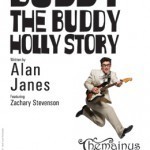Laura Langston's Blog, page 46
May 1, 2013
Pink Confetti and Revisions
 Nature often inspires me and it’s not unusual for me to find parallels between the natural world and the world of publishing.
Nature often inspires me and it’s not unusual for me to find parallels between the natural world and the world of publishing.
I thought about this last week. I was in Vancouver and the ornamental cherry trees were at their best – froths of brilliant pink against the blue sky (yes, it was sunny and that’s a rarity in Vancouver in spring). Those blooms don’t last long, even with sunshine. In fact, some had already dropped, carpeting the streets in swaths of pink confetti. But before they drop, they put on a dizzying, pull-out-all-the-stops dance that takes your breath away. And then Mother Nature, aided by wind and time, comes along and encourages those blooms to drop so the trees can leaf out for another summer. And those trees will provide places for bird’s nests, and shade for picnics, and branches for kids to climb.
Those cherry blossoms are a lot like the ideal first draft – over exuberant, wild and a little uncontrollable. And beautiful. Stunningly so. But then we need to come along and let the pink confetti fall. We need to let go of words, sometimes entire passages, possibly even characters. It’s hard. We’re usually a little in love with those words and those characters. We see their beauty. Almost always. But in order for our manuscript to leaf out and become a reasonably good book that actually holds someone’s attention, we need to play Mother Nature. And sometimes Mother Nature can be brutal. We need to remember that too. But she is inevitably wise . . . inevitably in tune with the natural order of things.
So when it comes time to edit my next first draft, I’ll try hard to let the pink confetti fall. After all, spring rolls around every year without fail. And without fail, there is always another book to write. 
April 24, 2013
You Know You’re a Writer When . . .
 I wasn’t that odd as a child, not really, although if you ask my father he’d probably disagree. I was sensitive to my surroundings (especially to the undercurrents of conversations and what wasn’t being said); I was prone to storytelling (others referred to this as exaggeration); and I had three special (imaginary-to-everyone-else) friends. I played with them, had conversations (and arguments) with them and I ate meals with them too. Sometimes, if my father was out, my mother would set three extra plates. I guess she knew I was a writer-in-the-making.
I wasn’t that odd as a child, not really, although if you ask my father he’d probably disagree. I was sensitive to my surroundings (especially to the undercurrents of conversations and what wasn’t being said); I was prone to storytelling (others referred to this as exaggeration); and I had three special (imaginary-to-everyone-else) friends. I played with them, had conversations (and arguments) with them and I ate meals with them too. Sometimes, if my father was out, my mother would set three extra plates. I guess she knew I was a writer-in-the-making.
How do you know you’re a writer? You know you’re a writer when -
You had imaginary friends as a child only they were real to you.
You are prone to wild imaginings that can literally make your heart race.
Conflict makes you smile.
You don’t get non-readers.
You laugh out loud at conversations in your head.
Some of the letters on your keyboard are worn off.
You have pens in every room of your house, including the bathroom and beside your bed.
A song on the radio sparks a story idea.
You stare at random people and memorize their quirks.
You can predict the conflict or turning points in movies, and your family has made you promise to keep quiet until it’s over.
You get excited by Scrivener.
Eavesdropping is second nature.
You love bookstores (but hate them if they don’t carry your books).
You live in a constant state of ‘what now?’ closely followed by ‘what if?’
Twist is not a cinnamon stick.
You have scribbled an idea, a word, or a piece of dialogue on a restaurant napkin, boarding pass, old envelope, school newsletter, or empty toilet roll.
You find those odd bits of paper – sometimes indecipherable – in pockets, wallets, purses, drawers, stuffed between the pages of a book, and you save them.
Pacing is a concept not an activity.
You found it easier to write when you first started.
You have missed a turn, an exit ramp or possibly a plane because you were so absorbed in your story.
You weren’t comfortable as a journalist because you always wanted to change the end of the story.
Proofreading is automatic.
Character is not about your personal ethics.
A hero must be flawed. But sexy as hell.
You gather ideas, thoughts, bits of trivia and snatches of dialogue like black pants gather lint.
You visit a cemetery and take notes.
People you barely know ask you to read their book, their article, their life story. Or ask you to write it.
You have a weird combination of insecurity and confidence.
Finishing the scene is more important than answering the phone.
The Muse is an intimate.
You will read anything.
April 19, 2013
Patience . . . Persistence . . . Timing
 This heron has been visiting my pond lately. The fish don’t like it; they hide. At least I hope they do. But the heron always returns. He comes by several times a week, flapping his huge wings before settling onto a rock. Serenely he waits (I always think of him as a male) for the opportunity to catch dinner.
This heron has been visiting my pond lately. The fish don’t like it; they hide. At least I hope they do. But the heron always returns. He comes by several times a week, flapping his huge wings before settling onto a rock. Serenely he waits (I always think of him as a male) for the opportunity to catch dinner.
Herons are smart that way. They’re persistent and patient, and they have a lot of fortitude. If the fishing isn’t good the first time, they’ll try again. And again. It’s a good lesson for me as I force myself to ignore the enticing call of the spring garden and settle instead at my desk, day after day, writing and rewriting. Surviving in this crazy business of publishing requires a lot of patience and persistence, along with some luck and timing too.
A friend of mine, Lea Tassie, wrote a short story a few years back featuring a heron. It’s called Fishing Expedition and it’s available as part of her short story collection Harvest. Here’s the link: http://www.smashwords.com/books/view/5284
I think of Lea’s story just about every time my heron comes to call.
April 10, 2013
A Tomato’s a Tomato and a Book’s a Book
 I sow seeds around this time every year: tomatoes, peppers, eggplant, sweet peas. And basil. Lots and lots of basil. (I make pesto for the freezer in the fall). With luck, some heat, and a little water, a single seed will grow into a large, sturdy plant that will bear lots of fruit. In the same way, the seed of an idea, tended and metaphorically watered, will grow into a book that touches people.
I sow seeds around this time every year: tomatoes, peppers, eggplant, sweet peas. And basil. Lots and lots of basil. (I make pesto for the freezer in the fall). With luck, some heat, and a little water, a single seed will grow into a large, sturdy plant that will bear lots of fruit. In the same way, the seed of an idea, tended and metaphorically watered, will grow into a book that touches people.
When I’m sowing seeds, I’m usually focused on the end product: the book I’ll hold in my hand or the tomato I’ll eat. But lately staying on track isn’t easy.
In the world of publishing, there’s lots of talk about what’s better – books that are traditionally published or books that are self-published. Go on Twitter and I guarantee you’ll find someone extolling the virtues of one over the other.
In the world of gardening, the ‘what’s better’ debate revolves around the kind of seed you sow. There are those who insist open pollinated (sometimes called heirloom) seeds are far superior and the only way to go. Still others tout the virtues of hybrid seeds (the result of planned crosses between first generation parents). Then there are genetically modified seed (the devil’s spawn some would suggest).
Admittedly I’m not a proponent of genetically modified seed but as for the rest of it . . . well, it’s starting to bore me. Hybrid seed or open-pollinated? Traditional publishing versus self? Who. Really. Cares.
And who is the definitive authority on what’s better anyway?
As long as that tomato is the real deal: drippy and delicious and stuffed between slabs of homemade bread (with extra Hellmann’s mayo and maybe a slice of Havarti), I’m happy. And as long as that book yanks me in and holds me hostage – electronically or otherwise – I’m all over it.
Because as far as I’m concerned, a tomato is a tomato and a book is a book. Why complicate things?
April 3, 2013
Overheard This Week
 My week isn’t complete without a bit of eavesdropping. Not the ‘listen-at-the-closed-door’ kind, but the organic stuff you happen to pick up along the way.
My week isn’t complete without a bit of eavesdropping. Not the ‘listen-at-the-closed-door’ kind, but the organic stuff you happen to pick up along the way.
Like at the gym. My favorite this week was: I don’t want to be that kind of person.
Okay, so I did linger/loiter (which word is better? The conundrum of a writer.)
Let’s just say I lintered. I lintered for a while. But there were no closed doors and it was a public place and I actually did do a few leg presses while I was eavesdropping, even though I rarely use that particular machine and I probably caused some ligament damage in the process. But anything for a good story idea, right?
Turns out the person who made the statement (she of the pert blonde pony tail, horsy laugh and athletic thighs) didn’t want to complain about some injustice or another because she didn’t want to be that kind of person.
The individual she was speaking to (Audrey Hepburn hair; lime green runners) was wholly sympathetic. I am calling these two girmen. A little old to be girls, but a little young to be women. They’d be perfect characters to write into a New Adult fiction novel (which I’m told is the new, hot thing only it’s not all that new – Ann Brashares wrote a great NA fiction novel in 2007 – The Last Summer. But I digress).
This overheard tidbit had potential. In spite of my leg presses and hopefulness, however, it went nowhere. In fact, their conversation was kind of boring. So I went off (to a much easier machine) and had a (much better) conversation with myself about what might cause someone to say that.
I don’t think I spoke out loud but I might have. I’ve been known to. I did get a few stares. But then people often stare when I’m at the gym, mostly because I forget to comb my hair before I go.
I don’t want to be that kind of person. As story prompts go, it’s a good one, so I’m still tossing it around. And I’m still lintering. Only this time I’m targeting boens. The ‘not-quite-boys-not-yet-men’ group. They gather by the bench press machine.
Let’s hope I don’t hurt myself.
March 21, 2013
Dear Kindle: No Holiday for You . . .
 This week I planned to take my Kindle and run away. I figured every new relationship needs a little alone time. That it’s important to find out how you travel together. How you collectively handle stress. Like do arguments flare if there’s no shade at noon or if the bar runs out of tequila, that kind of thing? I planned to sacrifice a week of my time, pull myself off the couch and take my Kindle to sunnier climes. I figured our fledging relationship needed the test.
This week I planned to take my Kindle and run away. I figured every new relationship needs a little alone time. That it’s important to find out how you travel together. How you collectively handle stress. Like do arguments flare if there’s no shade at noon or if the bar runs out of tequila, that kind of thing? I planned to sacrifice a week of my time, pull myself off the couch and take my Kindle to sunnier climes. I figured our fledging relationship needed the test.
Instead my Kindle has to wait for its first plane ride. My mother-in-law had emergency surgery this week. My nurse friend, Julia, called it a ‘big surgery’ – something that’s serious at any age, but especially when you’re 88. So we’ll be staying close to home for a while.
Weeks ago, I loaded my Kindle with some light, perfect-for-the-beach reading material. I may not be beach bound, but light is good, especially when life feels heavy. So here’s what I’m reading this month:
Books on the Kindle for the (postponed) trip:
Do or Di by Eileen Cook
The Best Man by Kristan Higgins
The Lear Sisters Trilogy by Julia London
Books beside the bed (when I’m ready for something weightier):
Gone Girl by Gillian Flynn
Miracles Happen by Brian Weiss
March 15, 2013
A Small Production . . . A Big Impact
 I saw a stunningly good play a while back – The Buddy Holly Story at the Chemainus Theatre. Everything about it was exceptional – the acting, the singing, the entire production. It’s playing through early April; if you can get there, go. You won’t be disappointed.
I saw a stunningly good play a while back – The Buddy Holly Story at the Chemainus Theatre. Everything about it was exceptional – the acting, the singing, the entire production. It’s playing through early April; if you can get there, go. You won’t be disappointed.
The whole experience made me think about talent . . . about success . . . about what we value as a society.
There was Buddy Holly himself. I didn’t know much about him going in (other than the fact that he wrote Peggy Sue and he died young in a plane crash). I didn’t realize how hard he had to work to gain recognition for his ‘new’ kind of music. He refused to let society beat his talent down.
The performers also made me think. To say they were good is an understatement. The level of talent was up there with anything I’ve seen in London’s West End or on Broadway. And yet this show is running in a 275 seat theatre in a town of 4,000 located on an insignificant island in the Pacific Northwest. It will make only a tiny blip on the arts scene – a small success by our cultural standards.
We don’t celebrate small (Unless it’s the numbers of the scale). We celebrate big and we chase it too. Actors want their performances to find the widest possible audiences; they dream of movie deals and coveted awards. Writers do too (and anyone who denies it is lying).
Dreams are great things to have. So is ambition and drive. Without it I’d be on the couch clicking between HGTV and the Food Network and I’d probably never write another book. But it seems to me we’re so intent on celebrating those big successes – the famous runs – that we sometimes forget to appreciate the small ones.
Small can be good. Small can be beautiful. Small can represent a large amount of talent. Go to Chemainus. Watch Buddy Holly. You’ll see what I mean.
March 6, 2013
A Sifting We Will Go . . .
Later this week I’ll be retreating with a few writers to ponder all things story and publishing. We do this four times a year, usually over a weekend. We laugh . . . we eat . . . we drink. And we work. We work hard. So hard that by the end of the weekend my head is crammed with information and ideas and inspiration, and it takes me a few days to sift through it all.
 This time, though, my head is also full going in. Actually, it’s more than full; it’s a mess. I need help brainstorming a new novel. I have an idea – an inciting incident really – and I have a character. But the rest is a tangled mess of threads, mostly because I could take this story in a number of different directions.
This time, though, my head is also full going in. Actually, it’s more than full; it’s a mess. I need help brainstorming a new novel. I have an idea – an inciting incident really – and I have a character. But the rest is a tangled mess of threads, mostly because I could take this story in a number of different directions.
Needing to send something ahead for the agenda, I wrote out a rough book blurb as a starting point for a brainstorming session. Except – the second idea had merit so I wrote that one out too. And then I wrote out the third one because it was different again, and also full of possibility. I tossed in a few character notes. A thought or two about the setting. A vague suggestion (okay, mostly a whine) about where I might find the love interest in all of this.
And I emailed the whole tangled mess to my fellow pen warriors. No doubt I’ll come away from the weekend with a head full of information, ideas and inspiration. But with some luck – and a little hard work – I’m also hoping that those tangled threads will be nicely sorted into one tight, cohesive and colorful story idea.
February 28, 2013
The Kindle Has Brought Out My Dark Side . . .
 I wasn’t desperate for an ebook reader. I wanted the perfect tablet instead. A tablet featuring E Ink and color, one that was easy to hold and reasonably priced. There’s no such thing. At least not yet. But there are plenty of books coming out in electronic form only, and I couldn’t read them easily. So I bought a Kindle Paperwhite.
I wasn’t desperate for an ebook reader. I wanted the perfect tablet instead. A tablet featuring E Ink and color, one that was easy to hold and reasonably priced. There’s no such thing. At least not yet. But there are plenty of books coming out in electronic form only, and I couldn’t read them easily. So I bought a Kindle Paperwhite.
It does the job. The lighting is terrific; it’s easy to hold. I never run out of reading material, and I don’t have to remember to take a book when I know I’ll be waiting somewhere. It’ll be great the next time I travel.
Friends said owning an e reader would change my reading habits, that I’d never buy physical books again. I don’t think so. A hardcover sits perfectly on the elliptical at the gym and I prefer a paperback in the tub. Plus, what would a cookbook be without those luscious, glossy pictures?
But the Kindle has done something. It’s brought out my dark side (And I’m not talking about how much I’ve spent in the Amazon store, though that certainly has its dark side). No, the Kindle has made me an impatient, stingy reader.
When it comes to physical books, I’m generous about giving a writer time to draw me in. I’ll read quite a long way before giving up on a story. I figure even a poorly crafted book teaches me something. With rare exceptions – that exception being a book that sucks so totally my eyes cross as I read – I pretty much finish everything I start.
Not on the Kindle. That screen is small. I read fast. If I’m not drawn in with a few swipes of my finger, I get cranky. My mind starts to wander. And if I’m not completely hooked in those first five or six pages (probably the equivalent of one or two pages in a physical book), then I’m hitting delete.
At first I felt guilty. Then I got worried. Maybe I had an arrested case of ADD. Or something worse. Maybe I needed to see my doctor (I don’t; the Kindle Paperwhite lets you google Web MD).
What I have instead is a new relationship. My Kindle and I need to get used to each other. Maybe my dark side will recede. Maybe I’ll become more generous and patient and revert to my old reading patterns. Maybe. Maybe not.
Either way, this dark, guilty business has reminded me of the importance of craft. The critical need for smooth, clear, and irresistible story openings. Openings so compelling the reader can’t stop reading. I’m not the only Kindle user out there. And I may not be the only impatient one.
What I’m reading this month:
On the Kindle - Angelfall by Susan Ee
At the Gym – Stay by Allie Larkin
Beside the Tub – Help, Thanks, Wow by Anne Lamott
February 20, 2013
Being Present, Take Two . . .
 My January vow to live in the present has taken a beating this last while. I’m planning a new novel, expecting a revision letter soon on another and fielding enquiries about possible spring author talks, so I’m very much looking forward. Besides that, February isn’t the easiest month to endure. It’s cold and rainy here on the Island. Today, the wind is so bitter that people are bundled up in hats and scarves and furtively whispering about the possibility of snow. The birds have deserted the pond. Even the dogs don’t want to linger outside.
My January vow to live in the present has taken a beating this last while. I’m planning a new novel, expecting a revision letter soon on another and fielding enquiries about possible spring author talks, so I’m very much looking forward. Besides that, February isn’t the easiest month to endure. It’s cold and rainy here on the Island. Today, the wind is so bitter that people are bundled up in hats and scarves and furtively whispering about the possibility of snow. The birds have deserted the pond. Even the dogs don’t want to linger outside.
But being outside inevitably brings me back to the present. And with the snowdrops blooming around the neighbor’s tree, and a field of crocuses putting on a show just down the block, the present is a good place to be. Because, yes, even February has its charms. 




